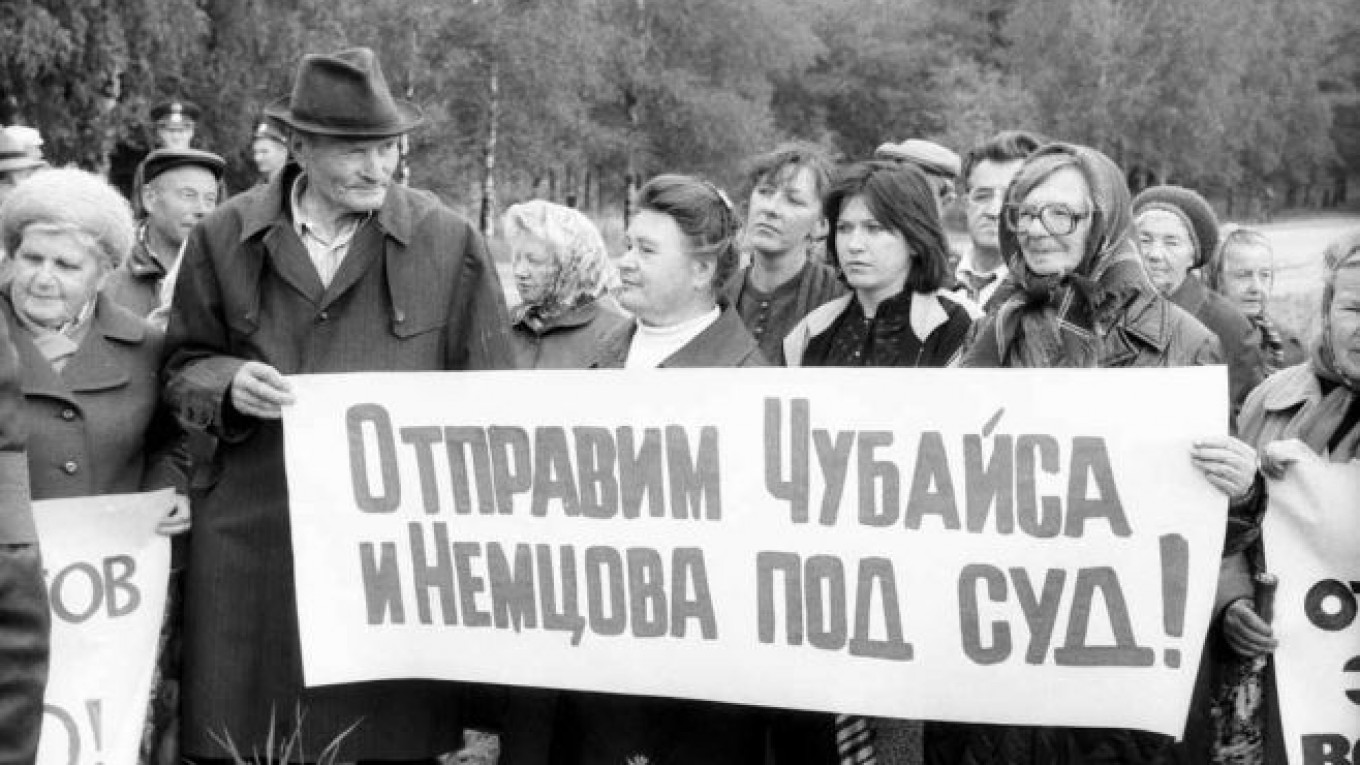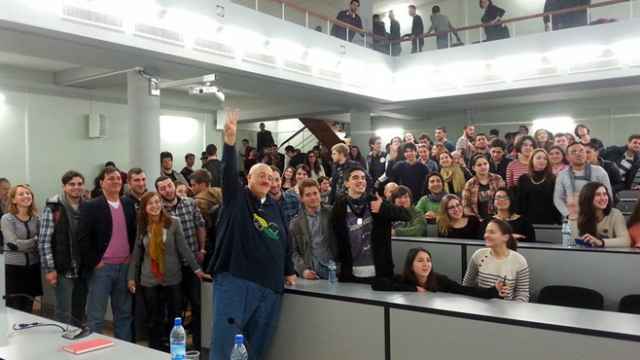Former Deputy Prime Minister Anatoly Chubais' 60th birthday did not exactly make headlines last week. There are two reasons for this. First, it is commonly accepted to think of him as young: he was just 36 years old when he assumed that key government post back in 1991 in the midst of an economic crisis. Second, almost a decade has passed since Chubais last did anything even remotely controversial. He completed reforms to the state-owned electrical power monopoly RAO UES in 2008 and now heads the state-run nanotechnology company Rusnano.
Although opposition leader Alexei Navalny claims that the Rusnano leadership is ineffective, that is a glowing compliment compared to accusations leveled against other state-owned corporations.
Not only do people never argue anymore about Chubais, but I have difficulty explaining to my students — most of whom were born after he became the public's whipping boy for the painful economic reforms of the early 1990s — why he aroused such passions 15-20 years ago.
To be honest, I'm not sure myself why he did. After all, there were many other, more senior reformers in Yeltsin's government. Nobody ever made any compromising revelations about his professional or private life and roughly the same level of passions swirled around him as around any member of the ruling elite.
But it is one thing to be the focus of various passions and quite another to be singled out by the entire country as the cause for all of its ills, as captured in the now household phrase "It's all Chubais' fault" that first appeared on the Yeltsin-era satire television program "Kukly" ("Dolls").
For what was he supposedly guilty? Chubais was primarily responsible for privatization, a sphere of activity that did not affect most Russians directly. There is no evidence to suggest that the workers of privatized enterprises experienced greater difficulties than the employees of firms that were not privatized.
In fact, contemporary research based on newly available data from that period indicates that Russia's privatization program produced generally positive results. And yet, most Russians hold a very negative opinion of privatization, apparently because leaders have blamed it for most of the country's woes in the 1990s.
So what makes Chubais different from other Russian politicians? I think it is one quality, and one quality only that sets him apart: his willingness to publicly take responsibility for his actions. Chubais assumed responsibility for privatization and for his very successful reforms to RAO UES, and he is just as ready to explain which of his decisions have led to improvements as those which have ended in complete failure.
Which other Russian politicians or intellectuals do that?
For example, a great many commentators and politicians in the 1990s put forward every conceivable argument as to why it was important for the state to play a major role in the economy.
And now, after more than 10 years of nationalization and an increasing state role, who among them stands up and says, "Yes, I suggested we do that," or "Yes, I was the one who made it happen"? Anatoly Chubais remains the only senior Russian official who is always ready to answer for his words, and his actions.
Konstantin Sonin, a columnist for Vedomosti, is professor of economics at the Higher School of Economics in Moscow.
A Message from The Moscow Times:
Dear readers,
We are facing unprecedented challenges. Russia's Prosecutor General's Office has designated The Moscow Times as an "undesirable" organization, criminalizing our work and putting our staff at risk of prosecution. This follows our earlier unjust labeling as a "foreign agent."
These actions are direct attempts to silence independent journalism in Russia. The authorities claim our work "discredits the decisions of the Russian leadership." We see things differently: we strive to provide accurate, unbiased reporting on Russia.
We, the journalists of The Moscow Times, refuse to be silenced. But to continue our work, we need your help.
Your support, no matter how small, makes a world of difference. If you can, please support us monthly starting from just $2. It's quick to set up, and every contribution makes a significant impact.
By supporting The Moscow Times, you're defending open, independent journalism in the face of repression. Thank you for standing with us.
Remind me later.






